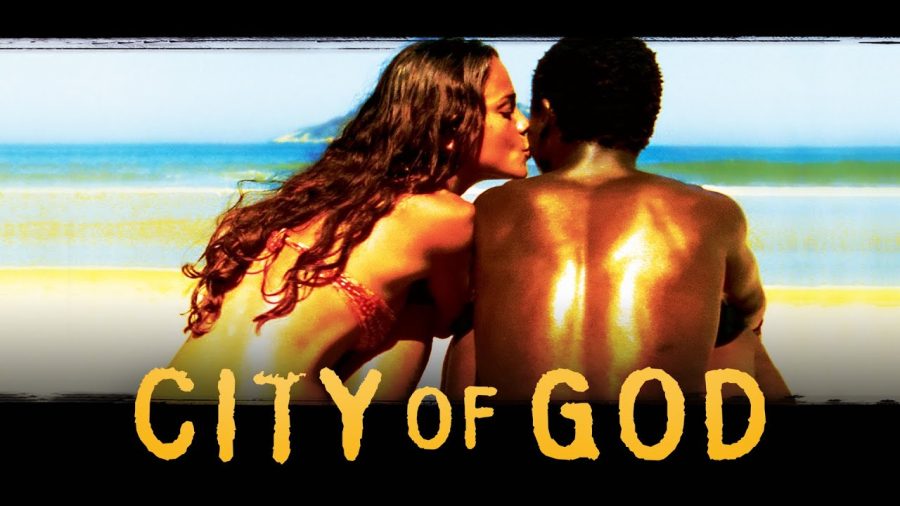Decades: Love and Death in the “City of God”
July 11, 2022
“Decades: The 2’s” is a series of articles tackling a year in each decade leading up to 2022. From 1952 to 2012, I plan to write about a single film that needs to make a return into the cinematic conversation once again to honor its overall quality and craftsmanship. These films may not be the defining film of the year, but one that should be honored with just as much regard.
2002 was an incredible year for movies. But there were a lot of films left by the wayside when we think about what we still collectively talk about. I could’ve done one of the greatest Wuxia films ever made with one of the most stacked casts in world cinema history with Hero, or despite being extremely popular I could’ve talked about Catch Me if You Can secretly being a top 5 Spielberg. Maybe even a piece on revisiting my childhood with Spirit: Stallion of the Cimarron (wait that actually sounds really fun). But after a lot of thinking, I could really only do one movie. Easily one of the greatest films ever made (yes that’s right), City of God.
City of God (Cidade de Deus) is a sprawling tale of Rio de Janeiro’s infamous favela of the same name. Chronicling the tale of the slum from the 60s to 70s is Buscapé, a young wannabe photographer with a heart of gold. But in the City of God, being a good soul won’t save you from a bloody gang war that he’s caught between. With the vengeful Knockout Ned and Li’l Ze rendering the City to rubble and ash, Buscapé narrates the bloody history of the City of God.
Thematically and execution-wise, this movie reminds me quite a bit of another favorite of mine, Do the Right Thing, in the way that the protagonist is the main character but really because he’s our guide in this world he lives in. We don’t go super deep into one character as much as there are many people in this story with motivations that are made very clear. Every character has personality and they’re all specific to themselves. It’s an ensemble piece. Now, imagine the terrifying climax of Do the Right Thing but it’s an entire movie and it’s all edited by Thelma Schoonmaker.
Now, the characters are great but none of them are as memorable as Li’l Ze. I really can’t tell you anything but he is genuinely the most terrifying villain in cinema history. The second he’s on the screen he’s pure evil, nothing less.
Nothing beats the ending though, I didn’t do my research about the movie before seeing it so the ending floored me, one of my favorites in movie history.
But, here’s the thing, I can’t tell you any specifics. One, I don’t want to spoil it, two, it’s all like one scene that doesn’t let up. Sure, I can break it up into scenes in my mind but it all feels so experiential like very few other films. It’s all one story that trails on and off the main storyline tangentially to break up pacing in an expert fashion but that’s it. It’s a sprawling tale of this whole world you’re introduced to and I can’t even begin to break it down. In that way, it’s unique and a perfect way to tell a story like this.
For whatever reason, we don’t talk about this movie at all. What makes that fact crazier is how respected the film is. It’s the 24th greatest film of all time on Letterboxd, Time named it one of the greatest films ever made, and even Robert Altman himself said, “I think it’s the best picture I’ve ever seen.” I mean, when a movie is compared to Goodfellas by Roger Ebert, that’s nothing short of the highest praise any film could dream of. And yet…nothing came of this.
The cast was largely unknown but despite their performances, they continued to be unknown. Sure, Seu Jorge and Alice Braga went on to some pretty big stuff. But Seu Jorge had a very promising music career (I adore his music) ahead of him despite being in some big movies (a notable Wes Anderson alum). Alice Braga, though I’m a fan, spoke English fluently, had parents in the Brazilian film industry, and came from São Paulo. The rest of the cast were dark-skinned and from the slums of Rio with little experience. Whether it be how the Brazilian film industry treats dark-skinned people or how the famously corrupt and racist government is, most of the cast hasn’t been treated well.
But to the people who’ve seen it, you know it’s good. You know that it’s a chilling tale of the cycle of crime and poverty not just in Rio, but in any part of the world affected by the dark side of capitalism. Besides, whether or not we talk about it enough, the name “City of God” is one held high by filmmakers, critics, and cinephiles alike internationally. Every world cinema explorer considers the City of God a necessary and essential pilgrimage. That won’t change anytime soon.







